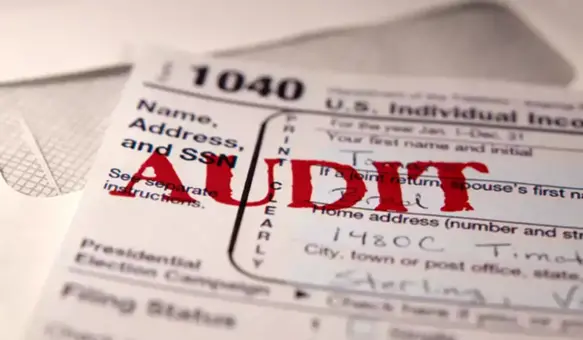Digital nomad taxes: What you need to know

Life on the move has its perks - new cities, fresh Wi-Fi, and maybe even beachside Zoom calls. But there’s one thing digital nomads can’t outrun: taxes.
Whether you're freelancing from Lisbon or managing remote teams in Chiang Mai, understanding digital nomad taxes is essential to avoid surprises from the IRS or foreign tax offices.
As a US citizen, your tax obligations follow you worldwide. And if you're working independently or earning income abroad, it’s crucial to understand how to report that income, what tax forms you’ll need, and how to take advantage of exclusions or credits available to you.
This guide covers the essentials including US tax filing, foreign taxes, self-employment rules, and how state taxes might still apply.
Do digital nomads have to pay US taxes?
Yes. If you're a US citizen or green card holder, you must file a federal tax return no matter where you live or earn money. The US has a citizenship-based tax system, which means your location doesn’t exempt you from filing.
Even if you earn all your income abroad, you’re still expected to report it including your digital nomad salary, freelance income, or payments from international clients.
The good news? You may qualify for tax breaks like the Foreign Earned Income Exclusion (FEIE) or Foreign Tax Credit, which can significantly reduce or eliminate what you owe to the IRS. But filing is still mandatory.
Do digital nomads have to pay taxes in a foreign country?
It depends on where you're living and how long you stay. Many countries impose taxes based on residency, not just citizenship.
If you stay in one country for an extended period (often more than 183 days in a year), you could become a tax resident and be subject to local taxation on your digital nomad income.
Some countries are more lenient. Places like Portugal, Georgia, or Thailand offer tax breaks or digital nomad visa programs that can shield you from full taxation at least temporarily.
Still, if you rent property, sign a long-term lease, or open a local business bank account, you may be creating a taxable presence.
Pro Tip: Always check local rules, and consult a tax advisor who understands where digital nomads pay tax based on residency thresholds and tax treaties.
Do digital nomads have to pay self-employed tax?
If you’re freelancing, consulting, or running your own business while traveling, then yes the IRS considers you self-employed. That means you're responsible for self-employment tax, which covers Social Security and Medicare.
For 2025, if your net earnings from self-employment are $400 or more, you must file Schedule SE with your tax return and pay around 15.3% on that income even if it was earned abroad. That’s on top of your regular income tax (unless excluded via FEIE or reduced with credits).
So if you’re wondering how digital nomads pay taxes on freelance income the answer is: just like any other business owner.
Do digital nomads have to pay taxes to the state?
Possibly and it depends on your last US state of residence.
Some states, like California, New Mexico, South Carolina, and Virginia, are notorious for chasing expats and digital nomads for income tax, even after they've left the country. If you maintain ties such as a voter registration, driver's license, mailing address, or property you could still be considered a resident for tax purposes.
Other states, like Texas, Florida, or Nevada, have no state income tax. If you can establish a domicile in one of these before heading abroad, you might avoid paying state tax altogether.
But be warned: "moving abroad" doesn’t automatically sever ties to your former state. You may need to prove you’ve established a permanent home elsewhere, and you should formally change your residency before leaving. For digital nomads with high incomes or significant assets, ignoring this step can be costly.
So before you pack up your laptop and passport, take care of your state tax status. Because where a digital nomad pays tax can be more complex than expected.
What forms do digital nomads need to file?
If you're a US citizen earning income while traveling or living abroad, you’ll still need to file a federal tax return – and probably a few other forms too.
Here’s a breakdown of what most digital nomads need to file:
Form 1040 – US Individual Income Tax Return
This is your main tax return. You'll report all income here, whether from US or foreign sources. Digital nomads must include their digital nomad salary, freelance income, or any business revenue here.
Schedule C – Profit or Loss from Business
If you’re self-employed (freelancer, consultant, etc.), you’ll use this form to report income and expenses. It's part of how the IRS calculates your digital nomad income requirements for tax.
Schedule SE – Self-Employment Tax
Used to calculate Social Security and Medicare taxes owed by self-employed taxpayers earning $400 or more.
Even if you live abroad, this applies unless you’re in a country with a totalization agreement (which may exempt you).
Form 2555 – Foreign Earned Income Exclusion
If you're eligible under the Physical Presence or Bona Fide Residence test, you can use Form 2555 to exclude up to ~$120,000 of foreign-earned income (the exact amount is adjusted yearly).
Form 1116 – Foreign Tax Credit
If you pay foreign income taxes, this form helps you avoid double taxation by claiming a credit for taxes paid to another country.
FinCEN Form 114 – FBAR
If you have more than $10,000 combined in foreign bank accounts at any time during the year, you must file an FBAR. It’s submitted separately from your tax return through the FinCEN portal.
Form 8938 – FATCA Reporting
If your foreign financial assets exceed certain thresholds (e.g., $200K if living abroad, $50K if in the US), you’ll need to file this with your tax return.
Understanding how digital nomads pay taxes starts with knowing what to file. Missing or skipping a form – even unintentionally – can lead to penalties.
Pro Tip: When in doubt, work with an expat tax professional.
Get expert help with your digital nomad taxes
US tax law is tough enough – doing it while you’re hopping time zones doesn’t make it easier. Whether you’re unsure what forms to file or how to claim exclusions, TaxesForExpats has your back.
Our team of CPAs and EAs understands the complexity of digital nomad tax compliance and makes it simple.
Simplify your digital nomad taxes
Get answers to your questions and an overview of our process
What if I haven't filed my taxes?
If you’ve missed a few years or never filed at all you're not alone. Many nomads don’t realize US tax obligations continue while living abroad.
The good news? The IRS offers a way to catch up penalty-free through the Streamlined Filing Compliance Procedures.
This program is designed for expats who were unaware of their filing duties. It allows you to file the last 3 years of tax returns and 6 years of FBARs without penalties.
NB! The sooner you act, the more options you’ll have.
What tax benefits are available for digital nomads?
Digital nomads may be able to reduce (or even eliminate) their US tax liability using these key benefits:
1. Foreign Earned Income Exclusion (FEIE)
The FEIE lets qualified US expats exclude up to around $120,000 of foreign-earned income from US taxation. To claim it, you must either pass the Physical Presence Test or the Bona Fide Residence Test.
Physical presence test
This requires that you spend at least 330 full days in a foreign country during a 12-month period. It offers more flexibility but demands careful tracking of travel days. It’s ideal for nomads who move frequently or don’t establish long-term ties in any one country.
To stay on track, use our tool to track your qualifying days and confirm you meet the 330‑day requirement before filing Form 2555.
Bona fide residence test
To pass this, you must be a resident of a foreign country for an entire calendar year. You need to show stronger ties like a lease, foreign bank accounts, or residency visa. This route works well for nomads who settle in one place for a long stretch.
| Criteria | Physical Presence Test | Bona Fide Residence Test |
|---|---|---|
| Time requirement | 330 full days in 12 months | Entire calendar year |
| Residency needed? | No | Yes |
| Travel flexibility | High | Lower |
| Best for... | Frequent movers | Long-term expats |
2. Foreign housing exclusion
If you qualify for the FEIE, you may also claim the Foreign Housing Exclusion to deduct qualified housing expenses – like rent and utilities – that exceed a base amount (~$17 per day). This benefit is especially useful for nomads living in high-cost cities abroad.
To claim it, you must file Form 2555 and include documentation of your expenses. Limits vary by location – for example, housing exclusions in Tokyo or London are higher than those in rural areas.
This can significantly reduce your digital nomad tax burden.
3. Foreign Tax Credit
If you pay taxes to a foreign government, you can claim a dollar-for-dollar credit on your US tax return using Form 1116.
This helps prevent double taxation and is especially useful if you're in a country with high-income tax rates and don’t qualify for the FEIE.
How digital nomads can choose a country that is tax-friendly
Before setting up your next base, consider how that country treats foreign income. Some countries offer territorial taxation, meaning they only tax income earned locally – not foreign earnings.
Others have tax treaties with the US that prevent double taxation.
Discover 15+ key tax breaks for US expats

FAQ
Not entirely but you can reduce your tax burden using the FEIE or Foreign Tax Credit.
Yes, if you meet the 330-day rule under the Physical Presence Test.
You still owe US taxes. But you can exclude foreign-earned income if you meet FEIE rules.
Only if they’re directly related to self-employment. Vacation or remote work travel isn’t deductible.
This guide is for info purposes, not legal advice. Always consult a tax pro for your specific case.



